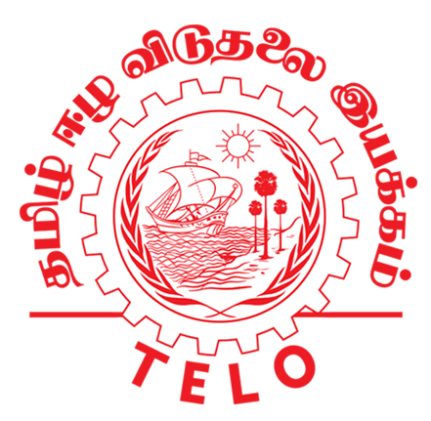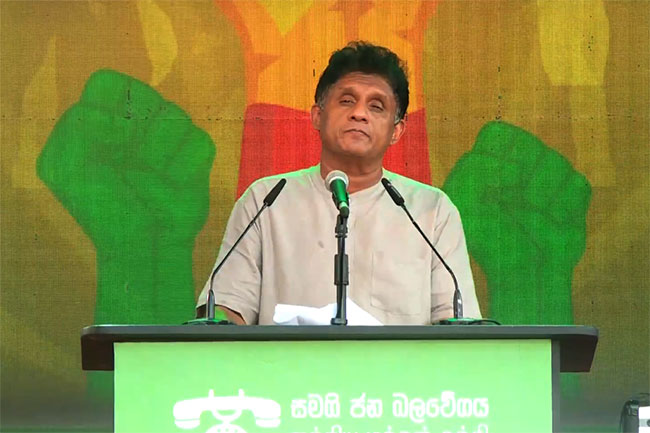A government led by Sri Lanka’s main opposition Samagi Jana Balawegaya (SJB) will implement the 13th amendment to the constitution, opposition leader Sajith Premadasa said, also claiming that people in the north have become addicted to false promises made by politicians.
Speaking at an event in Jaffna on Sunday June 09, Premadasa said an SJB government would ensure all civil and economic rights of the people.
“People in Jaffna district and the northern province have become addicted to the candy politics (losinjara deshapalanaya) of various leaders. They hand out these candies at election time.
“We will end the period that people fell for candy. Not just your civil rights, we will also provide economic, social, religious, cultural, educational health and right to life, as well as the right to a good income avenue to our beloved people,” said Premadsa.
An SJB government will implement the 13th amendment to Sri Lanka’s constitution, the opposition leader said, though he did not elaborate on to what extent the provisions in the amendment will be carried out.
“The people say enough talk, make it happen. I say to you that as action, we will definitely implement the 13th amendment, the amendment that’s contained in our country’s constitution.”
President Ranil Wickremesinghe has said that he is agreeable to full implementation of the 13th amendment except police powers.
At an all-party conference in July last year, Wickremesinghe said new police legislation would need to be introduced before police powers are dissolved to the provinces. Wickemesinghe also said Sri Lanka must either retain its provincial councils (PCs) with powers adequately devolved as provided for by the 13th amendment to the constitution or abolish the PC system entirely.
The full implementation of the 13th amendment continues to be a point of debate.
President Wickremesinghe has indicated his willingness to fully implement the amendment, particularly in light of India stressing on its importance. However, sharing police powers remains an issue, with many national parties in the south arguing against it.
The 13th amendment to Sri Lanka’s constitution emerged from the controversial Indo-Lanka Accord of 1987 as a purported solution to the worsening ethnic conflict, four years after war broke out. Provincial councils came in the wake of this amendment, though land and police powers have yet to be devolved to the provinces as originally envisioned. Both Sinhalese and
Tamil nationalists have historically opposed the amendment, the former claiming it devolved too much, the latter complaining it didn’t devolve enough.
A full implementation of the amendment would see land and police powers devolved to the provinces, a development that is not likely to garner support from Sri Lanka’s more hardline parties. In February, sections of the Buddhist clergy took to the streets against the proposed full implementation of the constitutional amendment.





